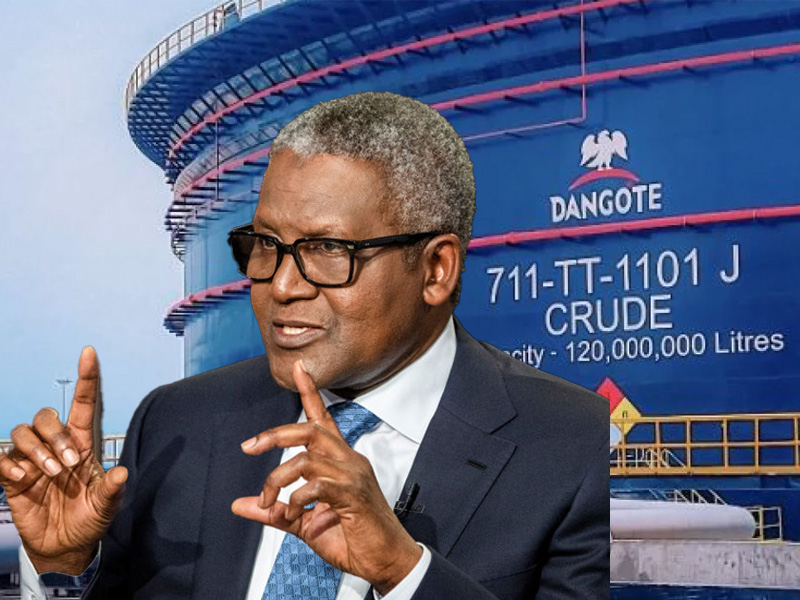Africa’s wealthiest individual, Aliko Dangote, has formally withdrawn a significant lawsuit aimed at compelling Nigerian authorities to restrict fuel imports, a move that signals a potential mending of relations with the government after a period of contention. This strategic decision comes as his massive Dangote Refinery intensifies its petroleum industry production, holding the promise of reshaping Nigeria’s energy landscape.
Court documents reveal that the Dangote Refinery filed a notice for discontinuation at a Federal High Court in Abuja, Nigeria’s capital, on Monday. While no explicit reasons were provided for the withdrawal, the timing and context suggest a shift in the ongoing dialogue between the influential billionaire and governmental bodies, potentially paving the way for renewed collaboration crucial for economic development.
The original lawsuit, launched in September last year when the Dangote Refinery commenced gasoline production, had pitted the company against Nigeria’s regulatory authority, several fuel importers, and the state-owned Nigerian National Petroleum Company Limited (NNPC). This legal challenge underscored the tensions surrounding fuel imports amidst burgeoning local refining capabilities.
At the heart of Dangote’s initial argument was the assertion that the regulator was acting in violation of its own laws by continuously permitting fuel imports. In response, Farouk Ahmed, head of the Nigerian Midstream and Downstream Petroleum Regulatory Authority (NMDPRA), publicly stated that the lawsuit was “not good for the nation” concerning energy security and “not good for markets” due to concerns about potentially creating a monopoly within the petroleum industry.
The multi-billion-dollar Dangote Refinery was envisioned as a cornerstone for Nigeria’s self-sufficiency, projected to meet all of the nation’s petrol requirements. However, recent data from June indicates that the refinery supplied approximately 15 million liters of petrol daily, a fraction of the total 48 million liters required, with the deficit still being covered by extensive fuel imports.
Despite the current shortfall, significant changes are anticipated as the Dangote Refinery, presently operating at 85 percent capacity, prepares to ramp up to its full processing capacity of 650,000 barrels of crude per day. This expansion is poised to drastically reduce Nigeria’s reliance on imported petroleum products, bolstering Nigerian Energy independence.
Across the petroleum industry, local processors are actively exploring diverse options for crude inputs to optimize their refining operations and enhance supply chain resilience. This ongoing diversification reflects a strategic effort to secure stable and efficient feedstock for domestic production, contributing to broader economic development.
In related business news, major international refiners are also demonstrating dynamic sourcing strategies. For instance, state-backed Mangalore Refinery & Petrochemicals Ltd. recently secured Azeri oil, a type not typically acquired by Indian processors. Similarly, Hindustan Petroleum Corp. purchased West African crudes like Nigeria’s Bonny Light and Egina, while Reliance Industries Ltd. opted for Abu Dhabi’s premium Murban grade, underscoring a global shift towards flexible and varied crude procurement.






Leave a Reply